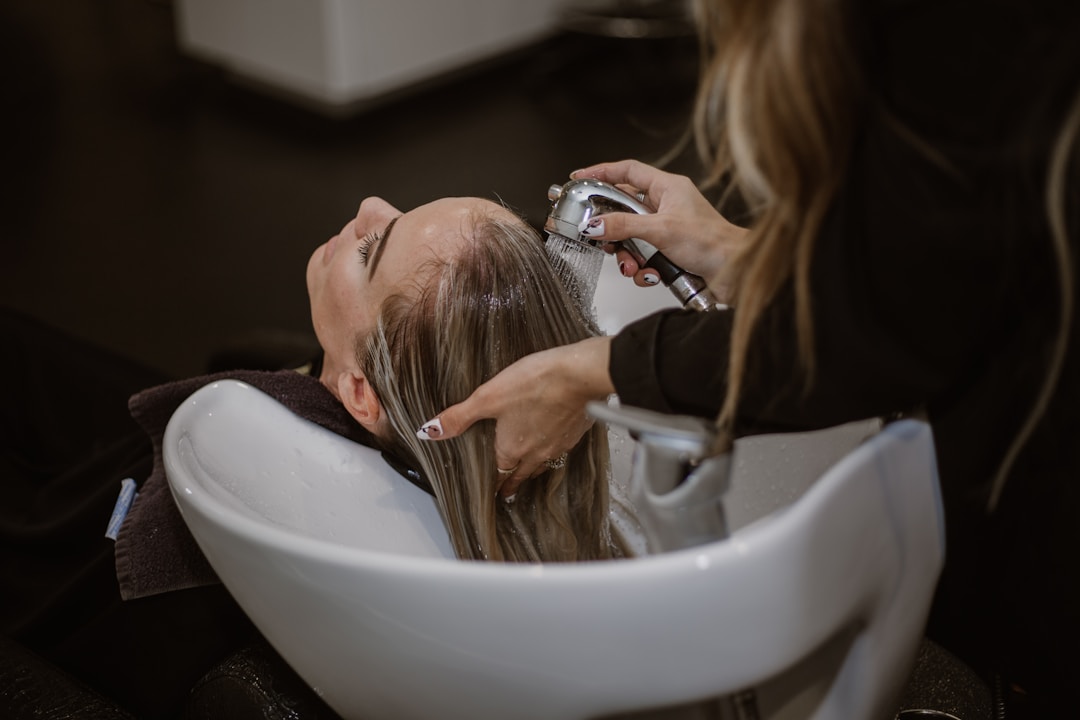With a panoply of hair care products flooding the market today, choosing the right product for your hair can be a daunting debacle. From volumizing sprays to hydrating shampoos, the options are countless and equally overwhelming. How do you know which product is best for your hair, or if the dazzling advertisements are worth their salt? We've designed this comprehensive guide to simplify your quest for the ideal hair care regimen. Keep reading as we delve deeply into the world of hair products.
Understanding Your Hair Type

Before embarking on the quest for the perfect hair products, it's crucial to have an understanding of your hair type. Hair types are categorized based on the structure and pattern of your hair strands. They range from straight to wavy, curly, and coily. Each type has its unique needs and response to different products. Just like skin care, one size does not fit all when it comes to hair care. Therefore, an understanding of your hair type gives you a head start in choosing the appropriate products.
A crucial step toward understanding your hair type is recognizing its unique issues. Whether it's dryness, oiliness, or lack of volume, these issues determine the kind of products you need. For instance, for dry hair, a switch to hydrating hair products could be the game-changer you need. Remember, the goal is to attain healthy, shiny hair regardless of your hair type.
Avoid the often misleading generalizations in beauty magazines or social media. Investing in a personalized hair regimen ensures you get the desired results. Therefore, understanding your hair type is the first critical step toward achieving luscious, healthy hair.
Choosing the Right Shampoo
The role of shampoo in any hair maintenance routine cannot be overstated. Shampoo is responsible for cleaning your hair and scalp, getting rid of the excess oil and dirt that builds up over time. The market is saturated with countless shampoo choices designed for different types of hair and needs. However, not all shampoos are created equal. Some are gentle, while others are harsh and can strip off natural oils from your hair, leaving it dry and lifeless.
The ideal shampoo should cleanse without leaving your hair stripped of its natural oils. It also needs to address specific issues your hair faces. For example, if you have dry hair, go for hydrating shampoos with ingredients such as aloe vera and honey. For oily hair, clarifying shampoos are the best as they can efficiently remove excess oils. If you have color-treated hair, opt for color-protecting shampoos to prolong the color vibrancy.
Watch out for harmful chemicals such as sulfates, parabens, and alcohol in shampoos. These ingredients can damage your hair, causing breakage, dryness, and frizz. Instead, opt for shampoos with natural ingredients, which are gentle on your hair and scalp, promoting healthy hair growth.
Selecting a Conditioner that Compliments Your Shampoo

Unlike shampoos that cleanse your hair, conditioners nourish and restore your hair's health. They coat the hair shaft, providing much-needed moisture and shielding your hair strands from external damages such as heat and pollution. However, just like shampoos, the right conditioner depends on your hair type and needs.
If you have dry and damaged hair, fortify it with deep conditioning treatments that contain oils and butters, and avoid conditioners with silicone, as they'll weigh your hair down, leaving it greasy. If your hair is fine and lacks volume, opt for volumizing conditioners with proteins that strengthen your hair, giving it the much-needed reinforcement without weighing it down.
Finding the Right Styling Products
Styling products are an essential part of any hair care routine. They enhance the final look of your hairstyle, keep your hair in place, and protect it from heat damage. However, the wrong choice of styling product can drastically affect your hair health, leading to dryness, dullness, and even hair loss. Therefore, it is crucial to choose appropriate products for your type of hair.
If your hair lacks volume, a volumizing mousse or spray can do wonders. These products coat the hair strands, making them appear fuller. For those with curly or wavy hair, curl-enhancing creams or sprays can help define your curls, reduce frizz, and add shine. For those that often style their hair using heat tools, a heat protectant is a must. These products form a protective layer on the hair shaft, shielding it from heat damage.
Remember, less is more when it comes to using styling products. Over-styling can lead to product buildup, which can weigh your hair down, rendering it lifeless. Also, avoid products with alcohol as they can dry your hair out. Instead, opt for products with natural ingredients that nourish your hair while styling.
Understanding the Importance of Hair Masks
Hair masks are like supercharged conditioners. They're packed with nourishing ingredients that penetrate deeper into the hair shaft, providing intense hydration, strength, and repair. Whether you have dry, damaged, or frizzy hair, there are hair masks designed to restore your hair's vitality.
The best hair masks contain high-quality, natural ingredients such as oils, butter, and proteins, which have proven benefits for hair health. They work by penetrating the hair shaft's innermost layers, nourishing from within. The result is stronger, shinier, and healthier hair.
However, beware of masks that are laden with silicones and synthetic fragrances. Silicones create an illusion of smooth, shiny hair but actually cause an unhealthy buildup, weighing your hair down. Always read the ingredient list and choose masks with more natural ingredients than synthetic ones.
Demystifying Hair Serums

Hair serums are excellent for adding shine, taming frizz, and protecting your hair from environmental damage. They're usually used on damp hair before styling, but they can also serve as a finishing touch after styling. However, finding the right serum for your hair type and needs can be tricky.
For those battling frizzy and unruly hair, look for serums with smoothing ingredients like argan oil and macadamia oil, which can tame your mane and add shine. For those with thinning or unhealthy hair, opt for serums that fortify your hair and promote growth. These serums usually contain breakage-reducing ingredients like keratin and biotin.
However, hair serums are not to be used as a replacement for conditioners or masks. Their goal is not to hydrate but to provide the final touch-up, sealing in all the goodness from other products and creating an aesthetic finish with a lustrous shine and soft feel.
The Layers of Hair Oils
Hair oils are the oldest form of hair treatment. They're revered for their intense hydration, frizz control, and shine-enhancing properties. However, to enjoy these benefits, you need to select the right oil for your hair and needs.
Dry hair benefits from coating oils like coconut or argan oil, which replenish the hair's moisture and prevent loss of hydration. These oils can penetrate the hair shaft, nourishing it from within and improving its health over time. Fine hair, however, requires lightweight oils like jojoba or almond oil, which add shine and hydration without weighing hair down.
Hair oil application should be based on your hair's needs. If your hair is dry, apply it from the roots to the tips as an overnight treatment. If you have oily roots and dry ends, apply oil only to the lengths and ends of your hair. Remember, a small quantity goes a long way.
Altogether, your hair care routine should focus on meeting your hair's unique needs with gentle, nourishing ingredients. Remember to cleanse, condition, protect, and nourish your hair, providing it with the tender care it deserves. Keep in mind that consistency is key to achieving the best results.






